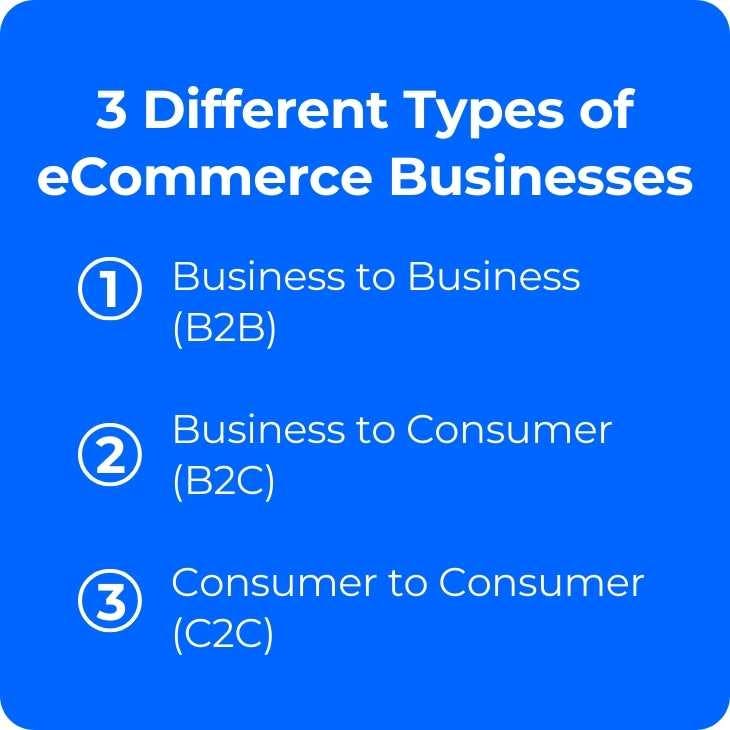- Incorporating a company
- Open a virtual business account
- Open a business bank account
- Checking whether you need a business license
- Learning about the eCommerce market
- Selecting a marketplace
- Organise bookkeeping and company maintenance
As one of the world's largest financial hubs, Hong Kong provides a great environment in which to start an eCommerce business.
The number of eCommerce start-ups and customers who use online shopping is rapidly rising in Hong Kong.
The market volume is expected to increase to $12,879 million by 2025.
If you are interested in registering an eCommerce business in Hong Kong, this article outlines everything you need to know to get started!
What Is an eCommerce Business?
An eCommerce business is a model in which companies and individuals can buy and sell their goods and services online.
There is no need to have a physical store, as you can buy and sell all your products and services through your computer, phone, or tablet.
There are three different types of eCommerce businesses.
Business to Business (B2B)
A Business-to-Business eCommerce business is one where goods and services are being sold from one business to another.
All transactions are carried out online between the business, making operations more efficient for popular B2B sellers such as manufacturers, distributors, and wholesalers.
Business to Consumer (B2C)
Another popular type of eCommerce is a Business-to-consumer business.
It has become extremely easy and convenient for businesses to reach their target consumer base online through successful marketing and online campaigns.
Moreover, consumers are also fond of this model as they can easily make purchases from the comfort of their homes.
Consumer to Consumer (C2C)
Lastly, a consumer-to-consumer business is a business model in which third-party companies such as Vinted or Depop enable consumers to sell products to other consumers without any other business participating in the transaction process.
You would be engaging in C2C business activity if you sold a new shirt that you forgot to return online or sold home furniture that was not in use anymore on Facebook Marketplace.

The Step By Step Guide
The general process of starting an online business in Hong Kong involves the following steps:
- Incorporating a company
- Open a virtual business account
- Open a business bank account
- Checking whether you need a business license
- Learning about the eCommerce market
- Selecting a marketplace
- Organise bookkeeping and company maintenance
Step 1: Incorporate a Company
The first step in incorporating a company is to choose a business structure.
The most popular business structures in Hong Kong are sole proprietorships, limited liability companies, and partnerships.
You need to understand each business structure so you can make the right decision for your eCommerce business.
Sole Proprietorship
A sole proprietorship is an unincorporated business entity where only one individual is the owner who pays income tax on all profits earned from the business.
It is one of the easiest types of businesses to establish due to the limited government regulation and the advantage of being your own boss.
Limited Liability Company
A limited liability company is a separate legal entity with limited liability for its owners if the business is ever in debt or needs to be wound up.
Since you are not personally held liable, it is fairly easy to raise capital and transfer ownership when necessary.
Here, you would need to have at least one shareholder and one director based in Hong Kong, as well as a local company secretary.
Partnership
A partnership is a business structure in which two or more people arrange to run a business and manage its operations.
In this business model, all partners are entitled to a share in the profit and are liable for any losses.
All profits are divided between the partners, with each partner paying tax on their respective shares.
Once you have chosen your desired company structure, the next step is to decide on a name for your business and incorporate it as a company.
Keep in mind that the name you choose for your online store does not have to be the same as the legal name of your business when you incorporate it.
After choosing your business structure and deciding on a name, all you have to do is complete the company incorporation application and submit the required documents to the Companies Registry of Hong Kong
If you want a more in-depth insight into incorporating a company in Hong Kong, you can read our article on company registration.
Step 2: Open a Virtual Business Account
Once your company has been incorporated, you have to think about how your eCommerce business will make and receive payments.
Opening a traditional business banking account is quite complex and may take a few months, which is why you should opt for a virtual business account.
There are many benefits to using a virtual business account, including waiting less time to receive payments and make international transactions.
Step 3: Open a Business Account
To open a business bank account, you will need almost the same documents used to register your company, including the certificate of incorporation, a registered business address, a copy of your business registration certificate, a business plan, and shareholder information.
Moreover, there are also many alternatives to opening a traditional bank account, especially for eCommerce businesses.
Multiple licensed money service operators also offer banking services specifically tailored for eCommerce businesses.
Step 4: Check If You Need a Business License
Depending on the nature of the business and the type of goods and services you offer, you will need to apply for a business license before engaging in any business activity.
This is an extremely important step as operating without a business license is illegal and could severely damage your business and its reputation.
Step 5: Learn about the eCommerce Market
Once you have successfully incorporated your company, opened a business bank account, and obtained the necessary business license, it is time to learn more about the eCommerce market before getting set up on a marketplace.
This is your chance to thoroughly research and understand the various online platforms available to you, their key features, and the services they offer before making a decision.
Most eCommerce businesses operate through platforms like Shopify or BigCommerce.
Such marketplaces have multiple features that eCommerce businesses benefit from, such as inventory management and advanced reporting tools for accounting purposes.
You need to carefully research each marketplace and decide which one you will benefit the most from.
You could also run your own warehouse and directly ship orders to your customers.
However, this model has disadvantages as you will face a higher workload and be under a financial burden.
Another option is dropshipping, in which you don't store the products yourself and the supplier is responsible for shipping orders to customers.
Here, you don't have to worry about shipping and can direct all your attention towards marketing and building your website and brand.
Step 6: Selecting a Marketplace
After thoroughly researching the eCommerce market, you need to select a marketplace of your choice and get set up there.
This will depend on your eCommerce target audience and distribution strategy.
Once you have the basics sorted out, you need to apply to become a seller on the marketplace you have selected.
During the application process, be prepared to provide your business registration number and your business account number to authenticate your business.
Step 7: Arranging for Company Maintenance
Similar to traditional companies, an eCommerce business is also subject to annual compliance requirements.
These include filing profit tax returns after the first 18 months of business and filing an employer's return of remuneration and pensions with the Inland Revenue Department of Hong Kong.
To meet such requirements, your eCommerce business must maintain business records regularly to ensure the business is compliant and avoid any confusion.
Final Words
Setting up an eCommerce store in Hong Kong is an easy process that only requires a few simple steps.
However, you need to ensure that you have the right documents and have complied with the necessary regulatory requirements.
Need help registering your business?
Register with Air Corporate today, and you'll get approved in under 48 hours.




